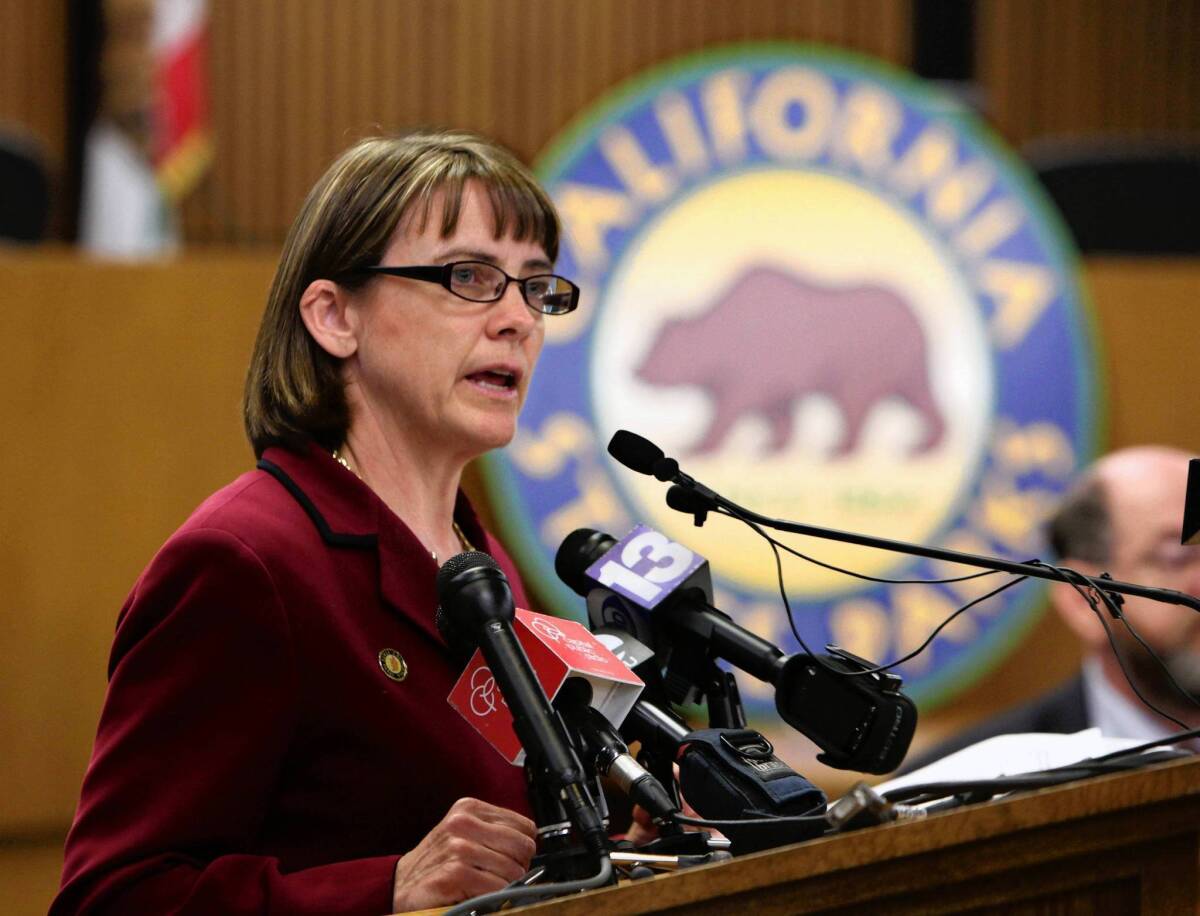Much of hidden state park cash was in controversial off-road fund

- Share via
SACRAMENTO -- The accounting scandal that forced the ouster of the California state parks director and her chief deputy has highlighted a long-standing rift over off-roading on public land.
The culture clash has pitted conservationists against drivers of dirt bikes and dune buggies, who have tangled over how to spend more than $100 million set aside to buy and manage land for off-road vehicles. That fund is where state accountants found more than half of a $54-million hidden surplus, the revelation that sparked the ongoing scandal.
Why the money went unnoticed for at least 12 years and whether it was intentionally hidden remains under investigation. But a former chair of the state commission that oversees off-road vehicle parks and advises how the money is spent said he wasn’t surprised to find the fund playing a starring role in yet another controversy.
“Parks has a culture of preservation as opposed to recreation,” said Eric Lueder, who was removed from the Off-Highway Motor Vehicle Recreation Commission by a state Senate committee earlier this month. “They don’t want people using the land unless they’re hiking or bird watching.”
Elizabeth Goldstein, president of the California State Parks Foundation, a nonprofit advocacy group, said no one is trying to slight off-roaders.
“We do not pick between our children here,” she said. “This is a great park system because it’s responsive to many different audiences.”
The Off-Highway Motor Vehicle Recreation Division is one part of the state parks department, focused on eight of California’s 279 state parks that have been set aside for such vehicles. That includes more than 80,000 acres of desert in San Diego and Imperial counties and more than 1,300 acres of hilly dirt trails in San Joaquin and Alameda counties.
The off-road parks are funded out of the Off-Highway Vehicle Trust Fund, and state auditors have warned over the years that park officials were mismanaging that money. At one point officials earmarked $38 million to purchase properties that a 2005 audit said offered “little or no additional OHV recreation.” The state didn’t end up buying much of the land.
In December, Gov. Jerry Brown upset off-road advocates by removing the program’s high-profile director, Daphne Greene, who was viewed as their community’s champion within an unfriendly parks department.
Tensions have surrounded the off-road program since it was created in 1971 in an effort to manage off-road recreation and protect and restore parklands. Environmental advocates have long contended that the program received too much money and that its leadership refused to allocate money for conservation.
“There’s always been huge reserves because they have more money than they can spend,” said Karen Schambach, the California director of Public Employees for Environmental Responsibility. But the program’s directors “were just adamant that the fund not be used for projects that didn’t benefit dirt bikes and ATVs.”
The off-road fund is one of several dedicated funds routinely targeted by state lawmakers as they try to balance the state’s books in lean budget times. There are $133 million in loans from the last three years still outstanding, according to Brown’s Department of Finance.
“We have served as the slush fund more times than I can tell you,” said Amy Granat, managing director for the California Off-Road Vehicle Assn.
Granat, who enjoys the outdoors via off-road vehicle because a rare disease has made it difficult for her to walk, said off-roaders feel like second-class citizens in the parks system.
“Frankly, they treated us very unfairly,” Granat said. “They did not treat us with the respect that is due hardworking, taxpaying California citizens.”
In 2010, $21 million was borrowed from the fund. This year Democratic lawmakers wanted another $21 million to be available for other parks, but Brown reduced the amount to $7 million.
The accounting scandal at the parks department has been an embarrassment for Brown’s administration, which had said the state was too broke to continue funding some 70 state parks, setting off a scramble by local communities to raise cash from foundations, wealthy donors, even bake sales. The hidden surplus was more than twice the amount needed to keep all 70 of the parks open another year.
The director, Ruth Coleman, resigned July 20, although she denied knowing about the hidden surplus. Coleman’s deputy, Michael Harris, was removed from his post when Coleman resigned, and the department’s top lawyer, Ann Malcolm, left her post on Wednesday. An interim director, Janelle Beland, is in charge.
State Sen. Joseph Simitian (D-Palo Alto), who incurred the wrath of off-roaders this year when he eyed their funding to support other parks, said the next round of leadership will face a steep challenge in navigating the concerns of environmentalists and off-roaders.
Said Simitian, “Whoever the next parks director is has their work cut out for them to improve the working relationship between the factions in the parks world.”
More to Read
Sign up for Essential California
The most important California stories and recommendations in your inbox every morning.
You may occasionally receive promotional content from the Los Angeles Times.











